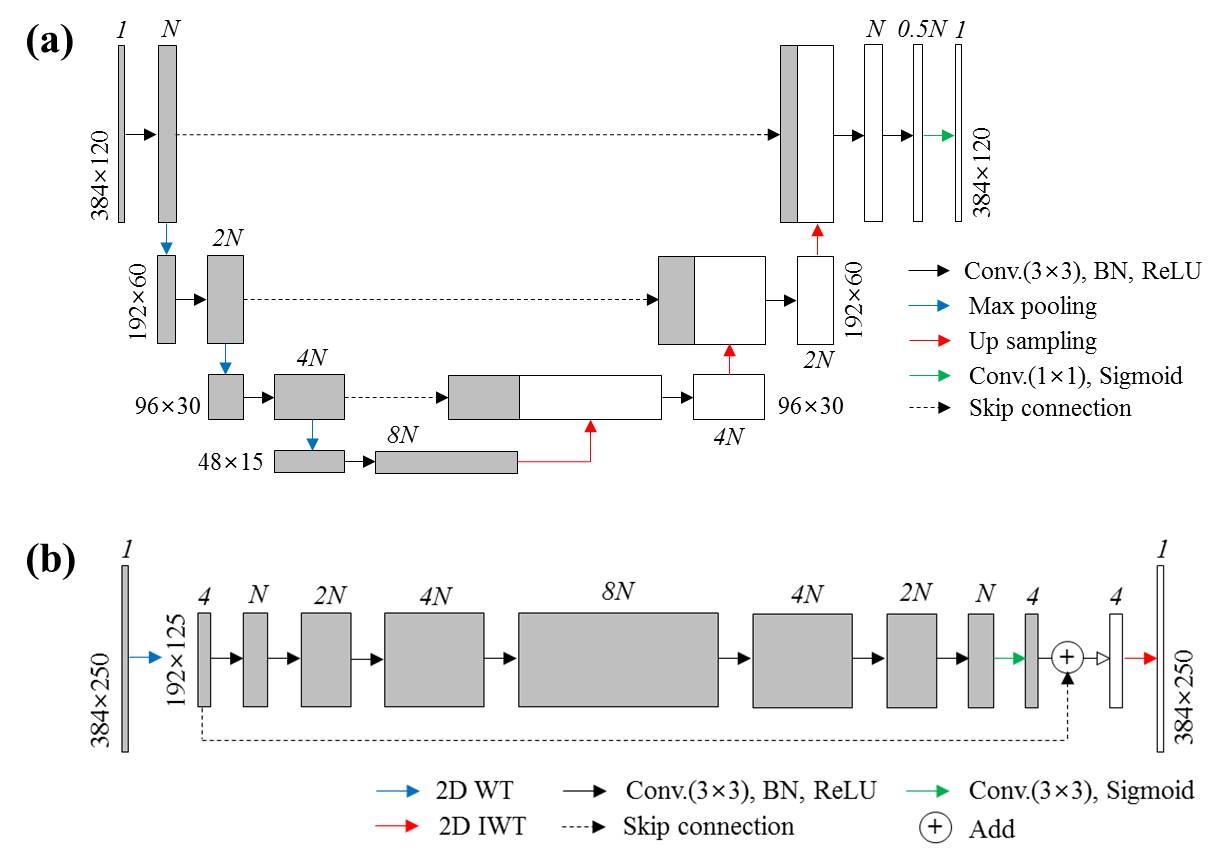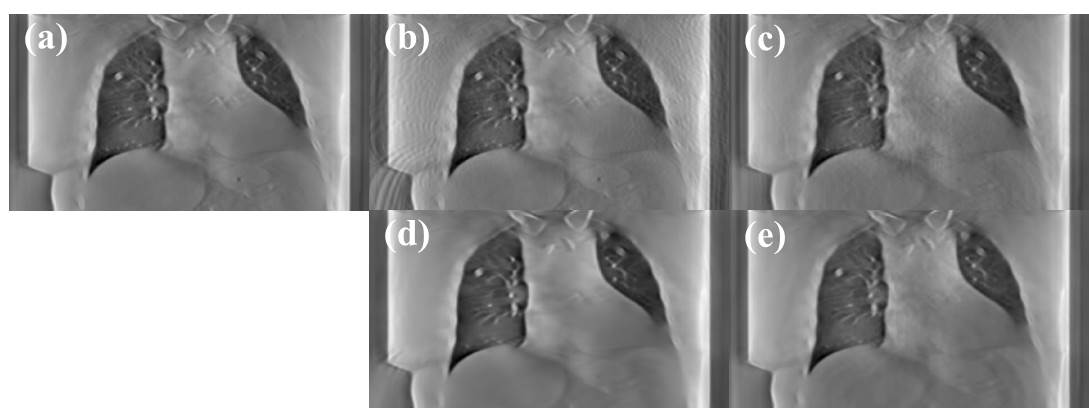글로벌 연구동향
의학물리학
- 2021년 03월호
[Journal of the Korean Physical Society volume] Respiratory-correlated 4D digital tomosynthesis with deep convolutional neural networks for image-guided radiation therapy건양대 / 이승완*
- 출처
- Journal of the Korean Physical Society volume
- 등재일
- 2021 12 January
- 저널이슈번호
- 78, pages169–176(2021)
- 내용
Abstract
4D digital tomosynthesis (DTS) techniques for image-guided radiation therapy (IGRT) are able to reduce radiation dose, scan and reconstruction time compared to 4D cone-beam computed tomography (CBCT). In spite of these benefits, the 4D DTS techniques cause the degradation of image quality due to an intrinsic imaging strategy and consequently reduce treatment accuracy. In this study, a deep learning-based convolutional neural network (CNN) framework was proposed for 4D DTS imaging. The proposed CNN framework consisted of the data restoration network based on a U-Net and the denoising network combined with a 2D wavelet transform, and the network training was implemented with clinical images. The quality of the 4D DTS images obtained from the proposed model was evaluated in terms of quantitative accuracy, spatial resolution and noise property. The results showed that the proposed CNN framework improved the quantitative accuracy of 4D DTS images by 3–19%, and the spatial resolution and noise for the proposed CNN framework were reduced by 2.24–7.33% and 8.92–40.07%, respectively, in comparison to other imaging models. These results represented that the degradation of the 4D DTS image quality can be recovered using the proposed CNN framework, and the proposed model is suitable for maintaining spatial resolution as well as suppressing noise and artifacts. In conclusion, the proposed CNN framework can be potentially used to improve the quality of 4D DTS images for the IGRT.
(a) U-Net 기반의 영상 복원 네트워크, (b) 잡음 저감화 네트워크

(a) 3차원 디지털단층영상, (b) 호흡동조 4차원 디지털단층영상, (c) U-Net 기반의 영상 복원 네트워크를 적용한 호흡동조 4차원 디지털단층영상, (d) 잡음 저감화 네트워크를 적용한 호흡동조 4차원 디지털단층영상, (e) U-Net 기반의 영상 복원 네트워크 및 잡음 저감화 네트워크를 동시 적용한 호흡동조 4차원 디지털단층영상
Affiliations
Seungwan Lee
Department of Radiological Science, College of Medical Science, Konyang University, 158 Gwanjeodong-ro, Daejeon, 35365, South Korea
- 연구소개
- 본 논문에서는 영상유도 방사선치료를 위한 호흡동조 4차원 디지털단층영상의 화질 향상을 위해 deep learning 기술을 개발 및 응용하였습니다. 본 논문에서 제안하고 있는 deep learning 기술은 U-Net 기반의 영상 복원 네트워크와 잡음 저감화 네트워크를 결합하여 개발되었습니다. 개발한 deep learning 기술을 통해 호흡동조 4차원 디지털단층영상의 잡음 및 인공물을 감소시킴과 동시에 공간분해능을 유지할 수 있음을 확인하였습니다.
- 덧글달기
- 이전글 [Radiother Oncol.] The relative biological effectiveness of carbon ion radiation therapy for early stage lung cancer
- 다음글 [Journal of the Korean Physical Society] Geometric and dosimetric verification of a recurrent neural network algorithm to compensate for respiratory motion using an articulated robotic couch







